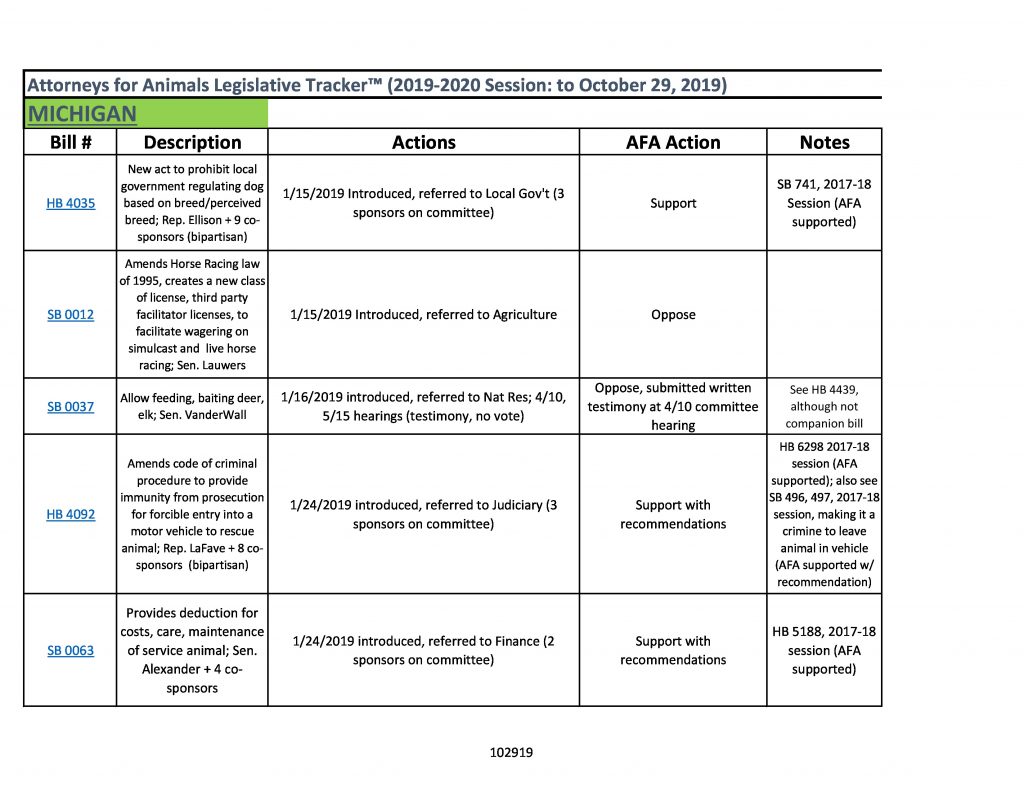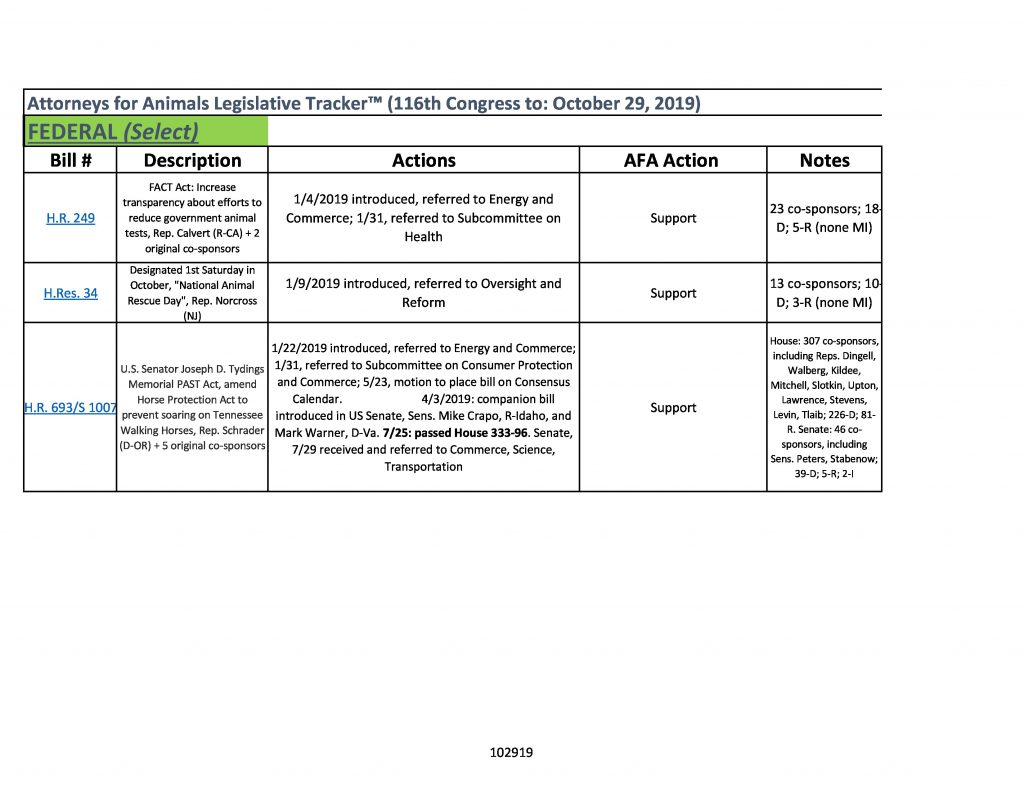
See the complete Legislative Tracker™ here.

The past month has seen some significant developments, including:
- Egg laying hens, Good News/Bad News/ACTION ALERT: SB 174 updates Michigan’s Animal Industry Act. The Act requires significant improvement to conditions for farmed animals, effective 2020. Earlier in October, the bill passed the Senate and is scheduled for a hearing in the House Agriculture Committee today. The good news is that SB 174 would make Michigan cage-free and require that all eggs sold in the state be cage-free. The bad news is that these standards would not go into effect until 2025. AFA cannot support the bill unless and until it lessens the time for phase-in of these improvements. We are sending an Action Alert for our Michigan supporters to call their state representative to oppose the bill if it retains the 2025 date.
- Regulation of Rescues, a hot-button issue. While AFA and most advocates support some regulation of rescue organizations in the state as a way to protect animals (currently only “brick and mortar” shelters are regulated), there remain some concerns about SB 419‘s impact on reputable rescues. A substitute bill is scheduled to be heard tomorrow in Senate Agriculture Committee, which addresses some of the concerns. We are hopeful that the sponsor will continue to work with a coalition of animal advocacy groups, including AFA, to make the bill better.
- Emotional Support Animals, jumping on the bandwagon. Michigan has joined a number of other states cracking down on the fraudulent practices that sometimes occur with these animals. However, we cannot support the bills currently introduced in the House (HBs 4910 and 4911, heard in committee this month) and Senate (SBs 608, 609 and 610, set for committee hearing Oct. 31). We are concerned that the bills are too heavy-handed and punitive, and could result in additional hardships to vulnerable people who rely on these animals.
- Federal PACT Act, the Preventing Animal Cruelty and Torture Act, passed the U.S. H.R. 724 has been called a “federal animal cruelty” bill, and is a major piece of legislation. There is some optimism that the Senate will pass the Act, because it has passed versions of the act in the past two legislative sessions unanimously.
